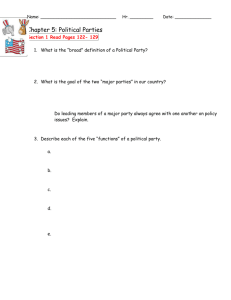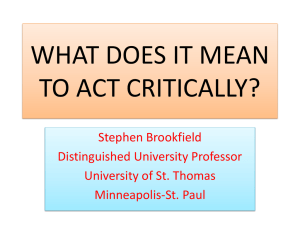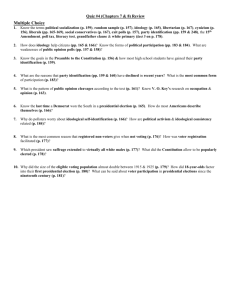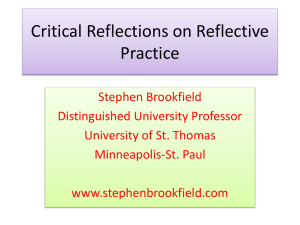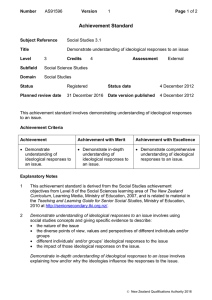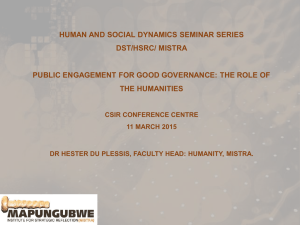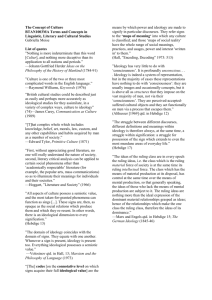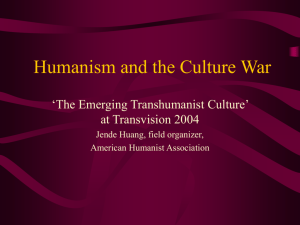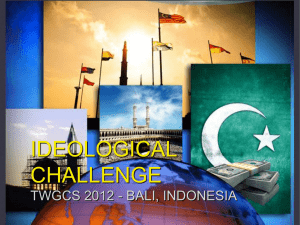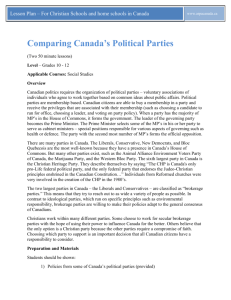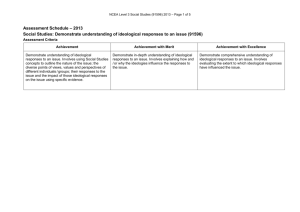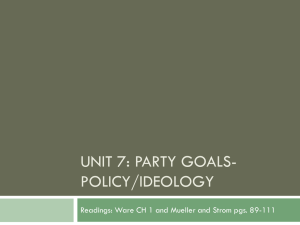Sociocultural aspects of materials and methods - ORB
advertisement
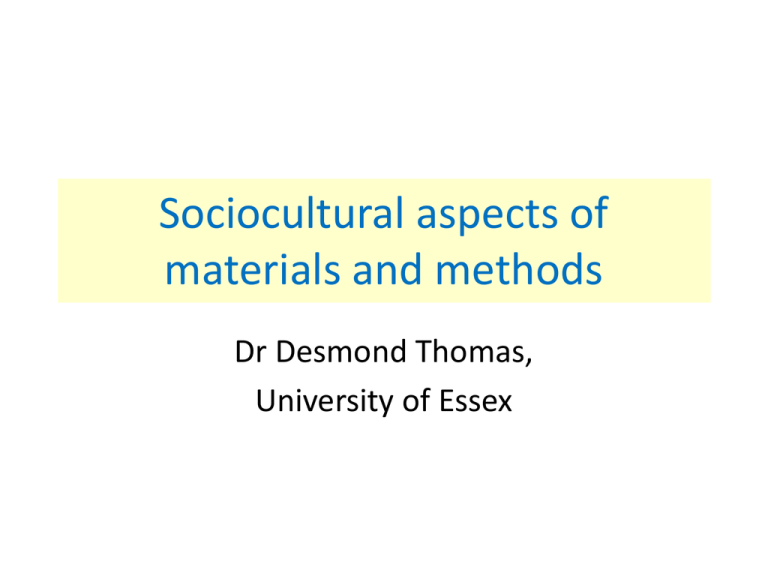
Sociocultural aspects of materials and methods Dr Desmond Thomas, University of Essex Indicated Reading 1 • Alptekin, C. 1993, ‘Target Language Culture in EFL Materials’, ELT Journal 47/2 • Auerbach, E. 1995, 'The politics of the ESL classroom: issues of power in pedagogical choices', in Tollefson, J. (ed.) 1995, Power and Inequality in Language Education, Cambridge University Press. • Clark, J. 1987, Curriculum Renewal in School Foreign Language Learning, Oxford University Press • Clarke, J. & Clarke, M. 1990, ‘Stereotyping in TESOL Materials’. In Harrison, B. (ed.) ELT Documents 132: Culture and the Language Classroom, Modern English Publications/The British Council Indicated Reading 2 • Dendrinos, B. 1992, The EFL Textbook and Ideology, Athens: N.C.Grivas • Holliday, A. 1994, Appropriate Methodology and Social Context, Cambridge University Press • Pennycook, A. 1994, The Cultural Politics of English as an International Language, London: Longman • Phillipson, R. 1992, Linguistic Imperialism, OUP Culture and TESOL: some questions 1. What is the cultural and ideological content of materials? And of methods? 2. How does this content affect learning & teaching? Is the effect significant? 3. What are appropriate materials for specific cultural contexts? And what are appropriate methods and approaches? 4. How can we adapt materials, methods and approaches to achieve appropriacy? What is culture? Pennycook (1994:62), identifies four interpretations of the concept of culture 1. "culture as a set of superior values, especially embodied in works of art and limited to a small elite" (in other words, 'high culture') 2. "culture as a whole way of life, the informing spirit of a people” 3. "culture as a set of values imposed on the majority by those in power” 4. "culture as the way in which different people make sense of their lives” What is meant by ‘ideology’? • According to Dendrinos (1992: 77-78):it "refers to a system of key beliefs, held by members of a group, that direct their actions and processes in some areas of life.” • These ideas help contrast the interpretation of culture as "'the whole way of a life" of a people or distinct social group with the idea of ideology as a framework through which this cultural experience can be interpreted Cultural & ideological content of materials • Overt vs covert cultural content • Cultural stereotypes 1: personality characteristics, dress, typical behaviours, acceptable vs non-acceptable social behaviour • CS 2: Gender roles in society • CS 3: National/racial • CS 4: Age-related Hidden cultural and ideological messages Social behaviour • Video sequence 1: “At the post office” • Video sequence 2: “Complaining customers” Gender roles • Husband and wife dialogues about work • Guess the job listening comprehension • Fixing a radio dialogue Racial integration • Interracial families and social scenes Exploiting cultural/ideological content TASK 1: Look at texts A, B, C, D. Consider: 1. What is the covert (or overt) cultural or ideological content? 2. Would students be aware of it? How could you make them aware? 3. Would it be worth exploiting such content? How could you do this? Culture & ideology in teaching approaches • It can be argued that classroom practices can be seen as cultural practices. The acceptance of this argument also entails acceptance of the 'non-neutrality' of teaching and learning (Pennycook 1994:178). • It can also be argued that aspects of teaching are inherently ideological. Auerbach reasons that:• “Pedagogical choices about curriculum development, content, materials, classroom processes, and language use, although appearing to be informed by apolitical professional considerations, are, in fact, inherently ideological in nature... (1995:9)” Cultural & educational imperialism • Phillipson suggests that there is such a thing as educational imperialism, involving the transfer of products such as textbooks, examinations as well as teaching methods and approaches from one educational culture to another in such as way as to impose them or make them indispensable. • Message: cultural practices are part of a plan Cultural conflict • Pennycook (1994:159), argues that: • The export of applied linguistic theory and of Western-trained language teachers constantly promotes inappropriate teaching approaches to diverse settings. It is of fundamental importance to acknowledge that different ways of teaching and learning are embedded in social, political, philosophical and cultural differences. It is not surprising, then, that conflicts often occur. Cultural and Educational Traditions • Classical Humanism: highlights the importance of knowledge transmission, linguistic standards, authority of the teacher, preservation of cultural norms • Reconstructionism: aims to create a better society through the education of individuals • Progressivism: highlights individual personal growth and achievement, learner autonomy, originality, lifelong learning (Clark 1987) Some points to consider … • What is the dominant educational tradition in your country? How is threatened by imported cultural and ideological values? • What happens when there is a conflict of cultural, ideological or educational traditions and values? • What are the effects on learners and teachers? • How can teachers and learners adapt to the ‘new values’?
